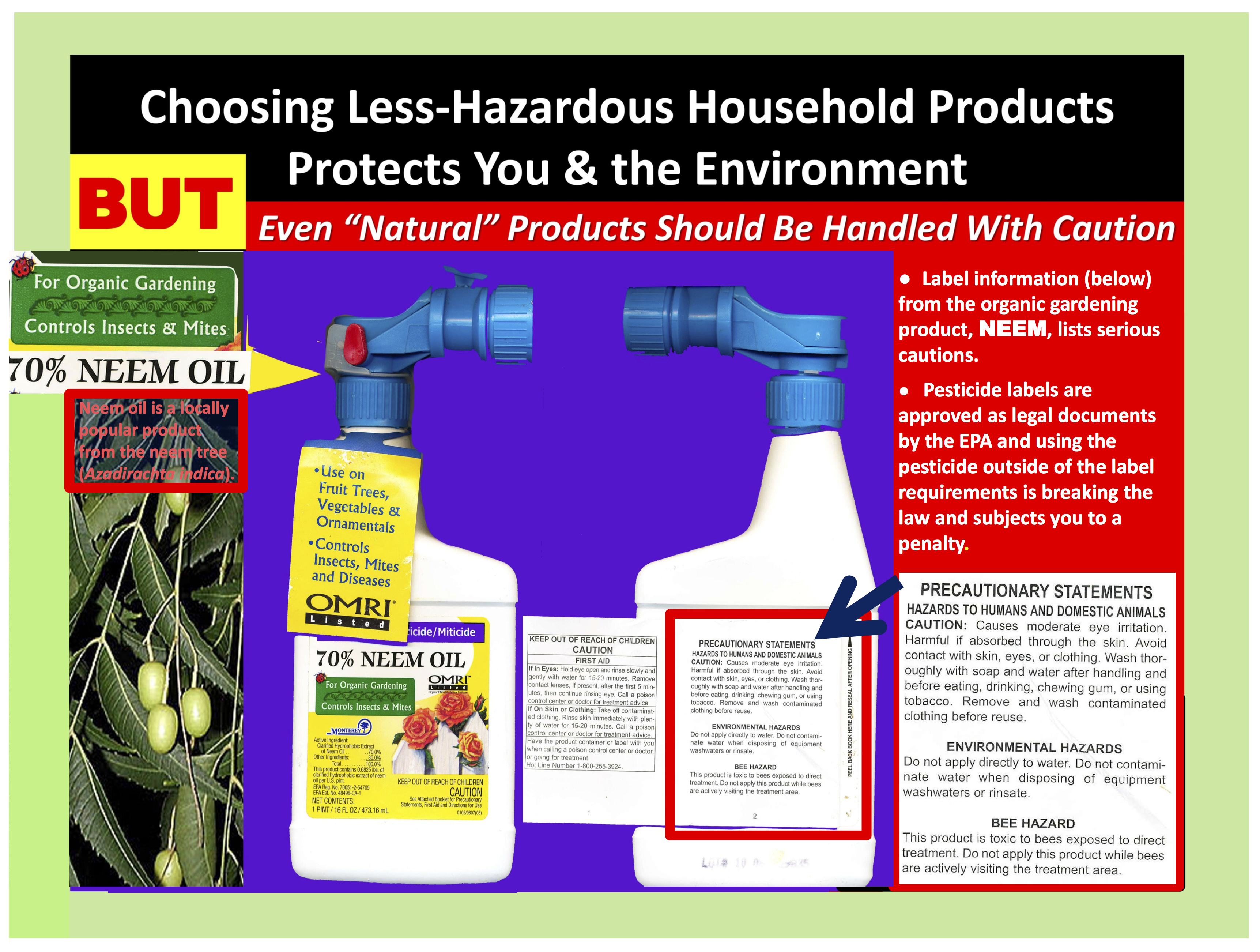
That’s because so many common household products are filled with substances that are potentially toxic to humans.
The Cooperative Extension Service at the University of the Virgin Islands is working to get that message across to residents, and to share tips on how to control their home environment so it’s as safe and secure as we all like to believe it is.
Pesticides and some commercial cleaners are of major concern, according to extension agent Dale Morton, and so are dust, mold and carbon monoxide, all of which are common indoor air pollutants.
Some strong chemicals are hidden in everyday items. Formaldehyde, which is known to cause leukemia and some other cancers, is a component in pressed wood furniture and paper towels.
Xylene/toluene is found in wood stains, lacquers, printing supplies and rubber and plastic cement. Inhaling its vapor and getting it on the skin can result in a host of poisoning symptoms including memory loss, irregular heartbeat, breathing difficulties, cough, digestive problems, dry and pale skin, nausea, dizziness and even tremors.
Cancer-causing benzene, the same substance that is so hazardous in cigarettes, is also found in many building materials.
Office printers and photocopiers typically contain Trichloroethylene (TCE,) which can cause skin and nasal irritation, genetic defects, immune deficiency and cancer.
More widely known substances, ammonia, alcohols, acetone and chloroform found in cleaning products, paints and cosmetics, can cause respiratory problems and irritations.
The key is “can cause,” not “will cause.” If handled properly, the products should be safe.
For all household products and for appliances as well, always follow the manufacturer’s recommendations, Morton said. If the label says not to operate a generator or a charcoal grill in an enclosed area, don’t. “They know why they’re telling you that.”
Gas-powered ranges can be problematic because of carbon monoxide.
“Pay attention to the flame,” Morton advised. If it’s yellow or orange, it is emitting the potentially deadly gas. The flame should be blue. And make sure the gas stove you bought is adapted for using the liquid propane sold on-island, not the natural gas common on the mainland.
Some dangers are more subtle. Excessive moisture in a house can cause mold and mildew and be especially problematic for anyone suffering with asthma or allergies. Some commonsense reminders: keep the house well ventilated, including using exhaust fans. If it’s air conditioned, be sure to keep the filter on the unit clean; it’s there to trap dust and other particles so you can eliminate them, not store them.
Keep damp clothes out of the hamper. Otherwise, Morton said, “You’re going to get mold developing in your hamper very, very quickly.”
Morton suggested avoiding chlorine bleach and using borax instead, because it’s less toxic. Better still, substitute vinegar for bleach when you want to give an extra boost to your dishwater or when mopping floors.
He also recommends electronic "zappers" for dealing with mosquitoes, rodents and other pests, rather than sprays or poisons. If a chemical can kill an insect or a small animal, it’s probably not healthy for a human.
If you buy a new car, drive it with the windows open for the first few weeks because that “new car smell” that’s so exciting is actually formaldehyde coming from the upholstery. It’s “outgassing,” or releasing volatile organic chemicals (VOCs) into the surrounding atmosphere.
VOCs are also in many homes, released from rugs and furniture. Household plants make a great antidote. They absorb the chemicals and clean the air. Morton recommended spider plants and aloe as particularly good and relatively cheap and easy to maintain, but almost any plant will help.
The Cooperative Extension Service has made home health education a priority. In January, CES hosted workshops on St. Thomas and St. John. Earlier this month, it sponsored a display and presentation at the Agricultural Fair on St. Croix. It also has published a how-to book on the subject, adapted for the territory: Help Yourself to a Healthy Caribbean Home.
Morton is available to speak to groups. He can be reached at 1-340-693-1080.





